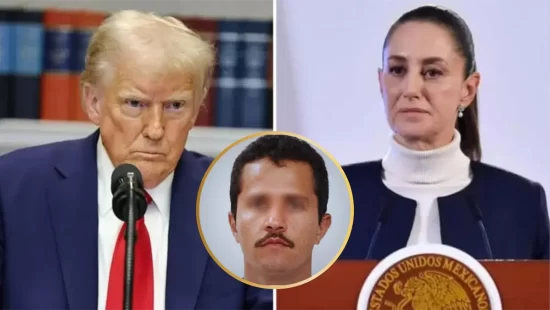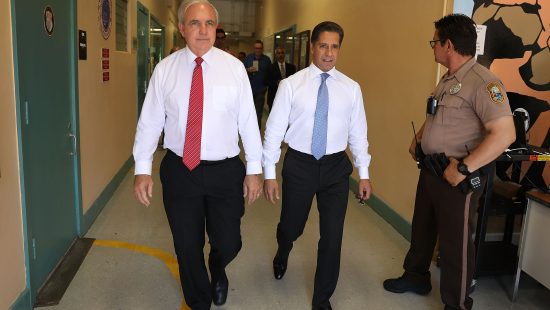Growing up in the Bay Area, Dr. Jennifer Menjivar-Lopez remembers her Salvadoran-born parents’ hardships as they struggled with little access to healthcare and navigated through a foreign country’s healthcare system.
Those challenges piqued her interest in the healthcare field, and her desire to work with underserved populations was later cemented when she volunteered at a general hospital in San Francisco and an asthma clinic that primarily served publicly insured patients.
“I knew that was the population of patients I wanted to continue working with,” says Dr. Menjivar-Lopez, who graduated from UCLA School of Medicine and did her pediatric residency at UC San Francisco.
“I can’t imagine myself working in any other environment,” adds Dr. Menjivar-Lopez, who has been with Clínica Romero as a pediatrician serving patients under 20 years old.
HELPING TO SET HEALTHY HABITS FOR LIFE
This mother of two children under 5 says she focused on pediatrics because she considered that preventive medicine is where she could make the biggest impact in her patients’ lives, especially if that started at a young age.
“You can instill so many healthy behaviors, like being vaccinated, counseling, and better nutrition, healthy eating, and exercise habits,” she notes.
She tries to cover all these healthy issues whenever she sees a patient for the first time.
“We review their growth, their height, weight, we ask if they are meeting their developmental milestones or if there are developmental delays,” she says of young kids.
For smaller children, there are also reviews of safety at home and in the car, whether the parents have baby-proofed their homes, and toilet training.
For older children, there are conversations around social issues, mental health, puberty milestones, as well as alcohol and drug avoidance and exposure.
There will also be screenings for anemia and tuberculosis, in addition to vision and hearing exams.
The idea is to get a general sense of the patient’s overall well-being, which directly impacts their health.
She also reviews whether the child, teen, or young adult has all the necessary vaccines—which, despite recent controversies and statements—are still the “best thing you can do to protect them (your children) from these diseases,” Dr. Menjivar-Lopez says. “Vaccines work.”
For instance, she notes that the large majority of the several hundred cases of measles around the country this year (a disease that was thought to be eradicated in the year 2000 but has resurfaced due to vaccine hesitancy) have been reported in unvaccinated children.
“That shows you vaccines work and they’re safe,” she says. “There’s no reason to delay vaccinations.”
“I wouldn’t recommend anything that I wouldn’t do for my own children,” says this mom.
Equally important is dental care, she stresses.
She recommends parents practice healthy dental habits with their children as soon as the first baby teeth start showing up, making sure the baby is getting used to the toothbrush, going to the dentist, teaching them how to floss, and weaning them off the bottle.
“We sometimes see these kids who are 6, 7, 8 who have never seen a dentist and are traumatized because they had so much dental work done all at once, so we’re trying to eliminate that trauma,” she says.
STRESS
“Something else that may be traumatic for minors nowadays is the ongoing stress many are experiencing.” Dr. Menjivar-Lopez says she’s seeing the effects of this in her patients, with some children withdrawing due to heightened anxiety and emotional distress, which can have serious impacts on their health.
Clínica Romero has responded to these withdrawals by expanding its telehealth offerings and improving “our ability to serve patients remotely so they don’t have to leave their home.”
“Younger children are very aware of their surroundings,” she says.
She tries to assure them that Clínica Romero will always be there to serve the community and its mission that “health care is a human right” extends to everyone.
“This is a safe place that people who may not be very trusting of the healthcare system can still go to,” Dr. Menjivar-Lopez notes. “I’m proud to be part of that system and that community.”
ESTABLISHING TRUST
Instilling that trust in her patients begins from the moment she first meets them and speaks to them in Spanish, if that’s their preferred language.
“It’s very freeing for them to communicate in their native language and express themselves in a way they couldn’t previously with an interpreter or with someone who didn’t speak their language,” she’s found.
“I want families to tell me their concerns. That’s how I start all my visits.”
“It’s really important for patients to have a voice and that their primary concerns are addressed,” she adds.
It’s also important for them to have access to health, and as a full-time pediatrician, she feels she can have the most impact for them now.
In her role, Dr. Menjivar-Lopez says that she is hoping to make a positive difference in her patients’ long-lasting health.
“To be able to care for someone else’s children is a humbling feeling,” she says. “It’s an honor and a privilege to be part of that dynamic.”








